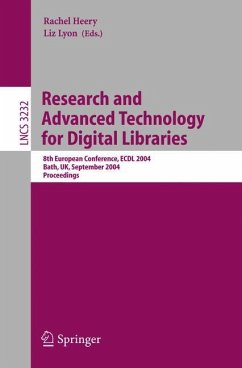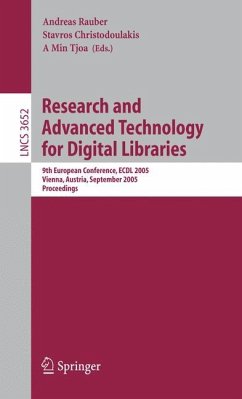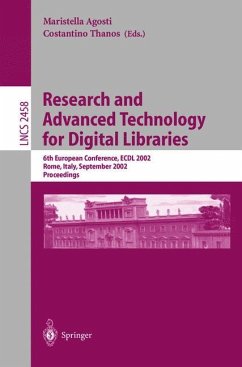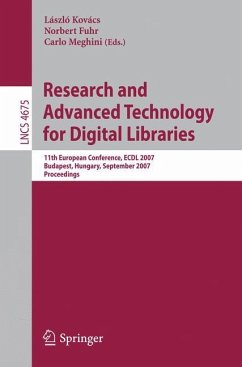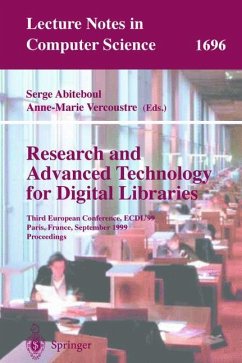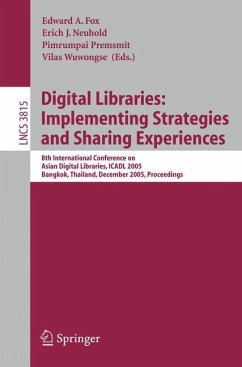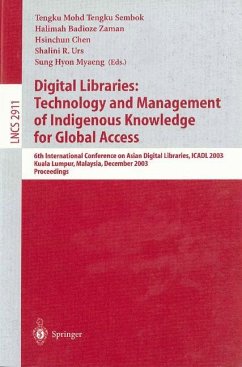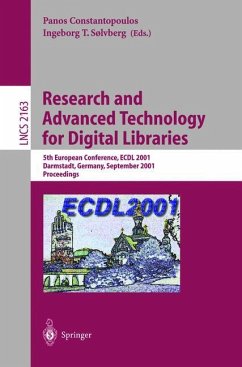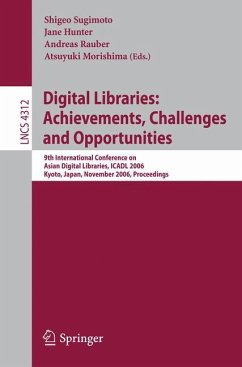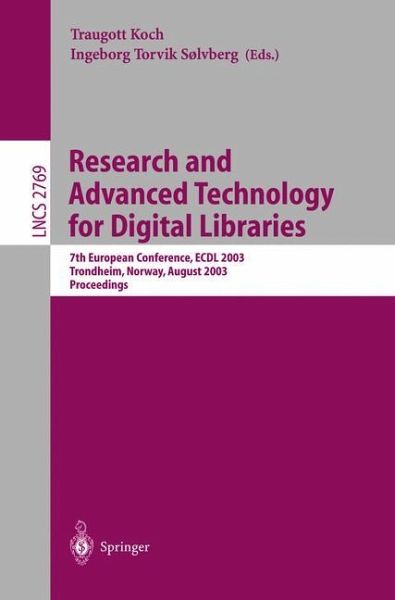
Research and Advanced Technology for Digital Libraries
7th European Conference, ECDL 2003, Trondheim, Norway, August 17-22, 2003. Proceedings
Herausgegeben: Koch, Traugott; Solvberg, Ingeborg T.

PAYBACK Punkte
39 °P sammeln!
Welcome to ECDL 2003 and to these conference proceedings, featuring all the papers presented at the 7th European Conference on Research and Advanced Technology for Digital Libraries. Following Pisa (1997), Heraklion (1998), Paris (1999), Lisbon (2000), Da- stadt (2001) and Rome (2002), ECDL 2003 in Trondheim reaches some of the northernmost shores of the continent. Being the seventh in an annual series of conferences represents, for better and for worse, a considerable tradition in the fast changing world of digit- library-related research and development. It is still a di?cult and slow job to...
Welcome to ECDL 2003 and to these conference proceedings, featuring all the papers presented at the 7th European Conference on Research and Advanced Technology for Digital Libraries. Following Pisa (1997), Heraklion (1998), Paris (1999), Lisbon (2000), Da- stadt (2001) and Rome (2002), ECDL 2003 in Trondheim reaches some of the northernmost shores of the continent. Being the seventh in an annual series of conferences represents, for better and for worse, a considerable tradition in the fast changing world of digit- library-related research and development. It is still a di?cult and slow job to change traditional forms and formats of communication at - and related to - scienti?c conferences, and also to change participants' expectations. Yet each new conference builds upon the topics and communities involved in previous events and inherits the commitment to quality established by its predecessors. Each year, ECDL has to live up to its role of being "the major European forum focusing on digital libraries and associated technical, practical, and social issues,"bringingdiversedisciplinesandapplicationcommunitiestogether.There arestillchallengesinthisrespectaheadofus,butthequalityandrangeofpapers and other contributions, combined with opportunities for debate, should ensure that ECDL 2003 sets high standards for the future.





